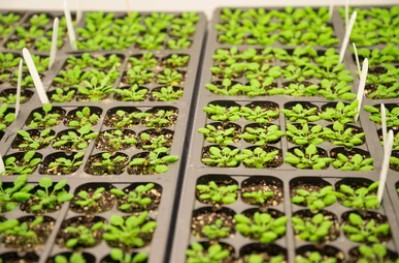
Brazzein is the smallest, heat-stable sweet protein isolated from the fruit of the West African plant Pentadiplandra brazzeana Baillon in 1994. A potential replacement for traditional sweeteners such as sugar and high fructose corn syrup is brazzein, which is approximately 500 times sweeter than sucrose. However, Pentadiplandra brazzeana Baillon is challenging to cultivate on a large scale, which hinders its application in the food industry. Researchers have successfully inserted the brazzein gene into the plant genome, which provides the possibility for industrial mass production of brazzein and a basis for cultivating excellent fruit and vegetable varieties.
Lifeasible has extensive experience in developing and characterizing transgenic plants, including producing transgenic plants expressing sweet proteins such as brazzein. Additionally, Lifeasible is committed to providing our customers with personalized service and support throughout the development of brazzein transgenic plants.
At Lifeasible, we design protocols to achieve high levels of brazzein expression and produce expression products that are structurally and functionally equivalent to native brazzein. In addition, we will increase brazzein expression levels through continued backcrossing of lines to elite inbred germplasm and generation of homozygous hybrid parent seeds for production.
| Service Step | >Service Content |
| Construction of plasmids | After identifying the transgenic plant species to be developed, clone the published amino acid sequences, including those of type 2 and type 3 brazzein. A promoter and vector are capable of high expression in the target plant and are selected to construct a plasmid carrying the brazzein gene. |
| Agrobacterium-mediated plant transformation | The plant expression construct is introduced into the plant of interest by the Agrobacterium-mediated method. Transformants are grown under selection pressure to ensure stable integration of brazzein into the plant genome. ELISA is used to quantify brazzein from seeds harvested from the first generation (T1) of each independent transformant. Transgenic lines expressing high levels of recombinant brazzein are backcrossed to commercial plant lines. |
| Extraction of total soluble protein | Tissues such as transgenic plant seeds or leaves are dried and crushed, dissolved in phosphate buffer, and the total soluble protein is recovered in the supernatant by homogenizing and centrifuging. The proportion of brazzein in total soluble protein is then determined by protein-dye binding assay. |
| Brazzein functional analysis | We will provide an ELISA assay to quantitatively analyze brazzein in transgenic plants and use a Hewlett-Packard G1000A automatic sequencer to analyze the amino-terminal sequence of brazzein. At the same time, the sensory analysis and sweetness test of brazzein are also our services, which are essential for testing the activity of brazzein. |
Technical means: Agrobacterium-mediated transformation
Agrobacterium tumefaciens strains: LBA4404, GV3101, EHA105, AGL1, etc.
Vectors: pNZ8148, pMSP3545, pCAMBIA, pGreen, etc.
Plant types that can be transformed: lettuce (Lactuca sativa), tobacco (Nicotiana plumbagnifolia), tomato (Solanum lycopersicum), strawberry (Fragaria × ananassa), maize (Zea Mays), carrot (Daucus carota subsp. sativus), sweet cucumber (Solanum muricatum), etc.
Delivery results: at least 10 T0 positive brazzein transgenic plants, experimental data, pictures, standard genetic transformation experiment report.

At Lifeasible, we proudly offer high-quality Brazzein genetically modified plant development services to meet the growing demand for healthier natural sweeteners. Our experienced team of experts is committed to providing custom and comprehensive service to meet the specific needs of our clients. If necessary, please feel free to contact us.
Reference